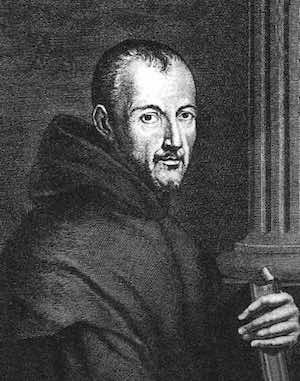Top > Other Musicians > Mersenne
This site introduces unknown composer Emanuel Bach (C. P. E. Bach). This English version was translated from Japanese one by ChatGPT.
Marin Mersenne (1588–1648)
Marin Mersenne was a French theologian, philosopher, mathematician, and music theorist, often referred to as the father of modern acoustics. While a friar of the Order of Minims, he made significant contributions to both science and music.
Contributions to Acoustics
Mersenne studied the nature and propagation of sound, laying the foundation for acoustics. He is particularly known for his research on vibrating strings, experimentally demonstrating that the frequency of a vibrating string is determined by its length, tension, and mass. This research is known as “Mersenneʼs Law” and has greatly influenced the design of string instruments and the theoretical framework of acoustics.

Major Work: *Harmonie universelle*
His principal work, *Harmonie universelle* (1636–1637), is a comprehensive study on music theory and acoustics. It covers the generation and properties of sound, the acoustics of musical instruments, and the theory of harmony and dissonance. This book represents an early attempt to bridge music theory and science, influencing later music theorists and physicists.
Mathematical and Scientific Exchanges
Mersenne was also an important figure in mathematics, particularly interested in prime numbers of the form \(2^n - 1\), known today as “Mersenne primes.” He actively engaged with contemporary scientists such as René Descartes and Blaise Pascal, serving as a central figure in promoting the exchange of scientific ideas.
Legacy
His research laid the groundwork for the development of acoustics and bridged the gap between music and science. Mersenneʼs contributions remain important references in the fields of acoustics and mathematics today.
Site search by Google
Upper< Lower> items
< Other Musicians> Mersenneʼs Acoustics and Prime Numbers